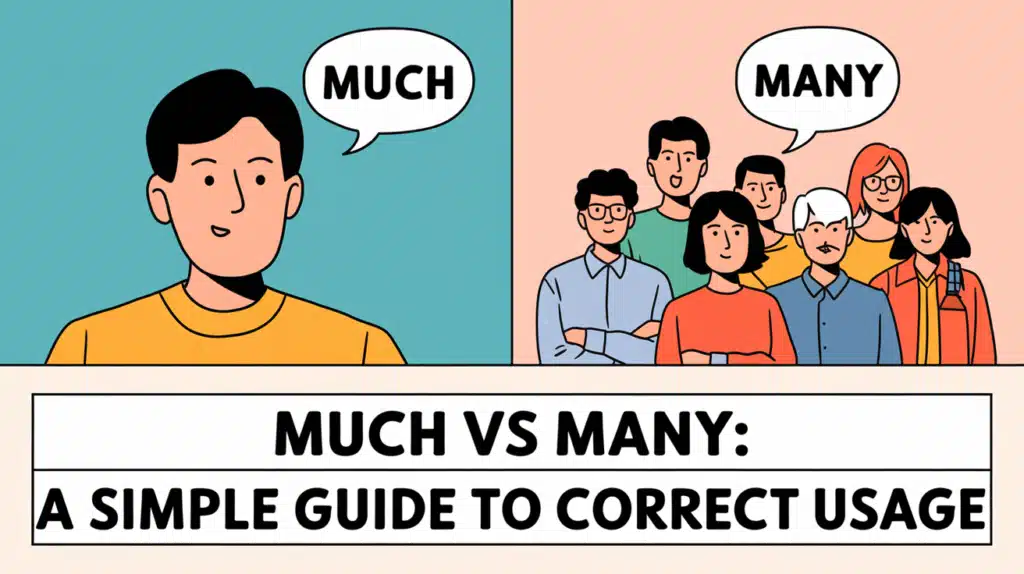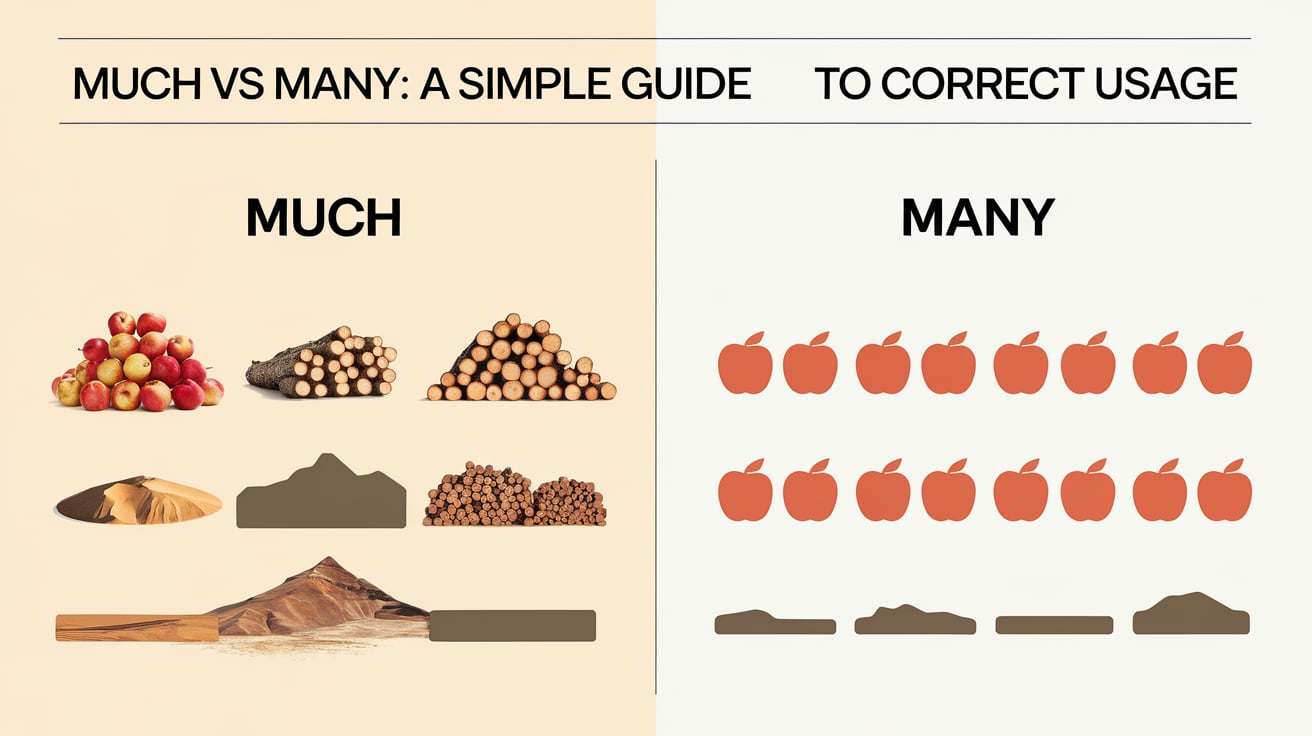Much vs Many: A Simple Guide to Correct Usage
Mastering English grammar requires a solid understanding of quantifiers in English, particularly the distinction between “much” and “many.” These two words often confuse learners because they both refer to quantity. However, their proper usage depends on whether the noun they modify is countable or uncountable. This guide will break down the difference between much and many, provide grammar rules, and offer writing tips to help you use them correctly in both formal writing and everyday speech.
Understanding the Confusion
Many English learners struggle with “much” and “many” due to their similarities. The confusion arises from the distinction between countable nouns and uncountable nouns.
- “Much” is used with uncountable nouns—things you cannot count individually.
- “Many” is used with countable nouns—things you can count separately.
Common Mistakes
Here are some typical grammar mistakes people make when using these words:
✅ Correct: I don’t have much time. ❌ Incorrect: I don’t have many time.
✅ Correct: There are many books on the table. ❌ Incorrect: There are much books on the table.
Breaking Down “Much” and “Many”

What Does “Much” Mean?
“Much” is a quantifier used before uncountable nouns. These include:
- Mass nouns (e.g., water, rice, sand, information)
- Abstract concepts (e.g., love, happiness, knowledge)
- Uncountable substances (e.g., milk, oil, flour)
When to Use “Much”?
You should use “much” in the following situations:
| Context | Example Sentence |
|---|---|
| Negative Sentences | I don’t have much patience. |
| Questions | How much sugar do you need? |
| Formal Writing | There isn’t much evidence to support the claim. |
Note: In casual speech, “much” is rarely used in affirmative sentences. Instead, we say:
- “A lot of money” (instead of “much money”)
- “Plenty of food” (instead of “much food”)
What Does “Many” Mean?
“Many” is a quantifier used before countable nouns. These include:
- Plural nouns (e.g., books, chairs, apples)
- Countable objects (e.g., bottles, pens, coins)
- People or animals (e.g., children, dogs, birds)
When to Use “Many”?
| Context | Example Sentence |
| Negative Sentences | She doesn’t have many friends. |
| Questions | How many apples do you want? |
| Formal Writing | There are many factors to consider. |
Key Differences Between “Much” and “Many”
| Feature | Much | Many |
| Type of noun | Uncountable nouns | Countable nouns |
| Used in | Negative sentences, questions, formal writing | General statements, casual and formal speech |
| Common Examples | Water, advice, furniture | Books, cars, teachers |
Commonly Confused Nouns: Should You Use “Much” or “Many”?
Some nouns appear countable but are actually uncountable in English. Here are examples:
| Noun | Correct Usage |
| Advice | Too much advice |
| Furniture | Not much furniture |
| Information | How much information? |
| News | There isn’t much news. |
How “Much” and “Many” Change in Different Contexts
Expressions & Phrases Using “Much”
- Too much – “There is too much noise here.”
- So much – “I love you so much.”
- How much – “How much sugar is in this cake?”
Expressions & Phrases Using “Many”
- Too many – “There are too many students in the class.”
- So many – “I have so many questions.”
- How many – “How many pencils do you need?”
The Origins of “Much” and “Many”
Etymology of “Much”
The word “much” comes from Old English “mycel”, meaning “great” or “large.” Over time, it evolved to signify quantity rather than size.
Etymology of “Many”
“Many” originates from the Old English word “manig”, meaning “a large number of.” It has always been used with plural nouns.
Quick Recap and Takeaways
- “Much” is used for uncountable nouns (e.g., water, happiness).
- “Many” is used for countable nouns (e.g., books, chairs).
- “Much” appears more in negative sentences and questions.
- “Many” is common in both spoken and written English.
- In casual speech, use “a lot of” instead of “much” in positive statements.
Conclusion
Understanding the difference between much and many is crucial for mastering English grammar. By remembering the basic grammar rules and sentence structure, you can avoid common mistakes. Whether you’re writing formal documents, crafting blog posts, or improving your writing style, these language tools will help you enhance your word usage.







